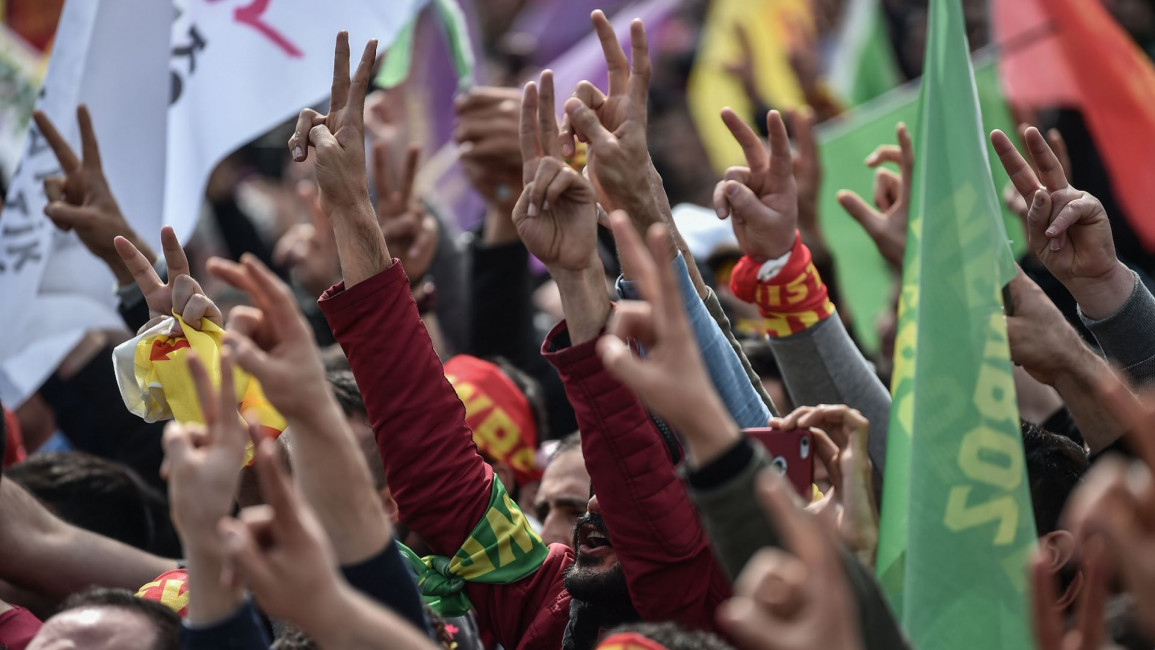European rights court fines Turkey over Kurdish rights-related detentions
The ECHR on Tuesday ruled in favour of the plaintiffs in two incidents that took place in eastern Turkey's Kurdish-majority heartland more than a decade ago.
Hakim Aydin was arrested in 2008 after taking part in a protest calling for Ankara to legalise Kurdish-language education.
A university student in Diyarbakir at the time, Aydin was charged with "propagandising for a terrorist organisation" over his involvement in the protest, as well as for taking part in Nowruz, or Kurdish new year, celebrations. He served three months in pre-trial detention before being handed a 10 month suspended prison sentence.
The plaintiff in the second case, Kemal Cetin, was also sentenced to prison after taking part in Nowruz celebrations in the eastern province of Mus in 2007.
Cetin and six others who organised the springtime gathering were sentenced to more than a year in prison for "attending an illegal demonstration".
|
|
The ECHR concluded that Turkey violated the freedom of assembly and association in both cases, as well as the right to liberty and security in Aydin's case. It has ordered Ankara to pay out 8,500 euros ($9,331, £7,637) in damages.
Both cases highlight the long-running fight for Kurdish language and cultural rights in Turkey.
The Turkish constitution forbids teaching any other language but Turkish - the country's only official language - as a "mother tongue".
In 2012, the Turkish government finally legalised the teaching of Kurdish as part of optional classes in schools. A number of private Kurdish-language schools established since the reform have been shuttered by the government.
Pro-Kurdish activists and politicians continue to call for Ankara to recognise the Kurdish language as a "mother tongue" and allow for it to be used as the primary language of education in the Kurdish-majority southeast.
There are more than eight million speakers of Kurdish dialects in Turkey, although some studies estimate that figure could be as high as 20 million.
Kurdish celebrations of Nowruz are a highly contentious issue as the Turkish government often views the festivities as a manifestation of separatist nationalism.
Authorities have sometimes banned celebrations, such as in Istanbul and Ankara in 2016, and tens of arrests were made at Nowruz festivities across the country in 2018.
Turkey has been fighting a prolonged on-off civil war with the Kurdistan Workers' Party (PKK), a Kurdish separatist organisation, since the early 1980s.
Although Turkey has liberalised the treatment of the Kurdish population in some ways since current President Recep Tayyip Erdogan rose to power nearly 20 years ago, the past six years have witnessed a severe deterioration in relations, with many Kurdish-majority towns subject to months-long curfews and military campaigns and pro-Kurdish politicians dismissed and jailed.



